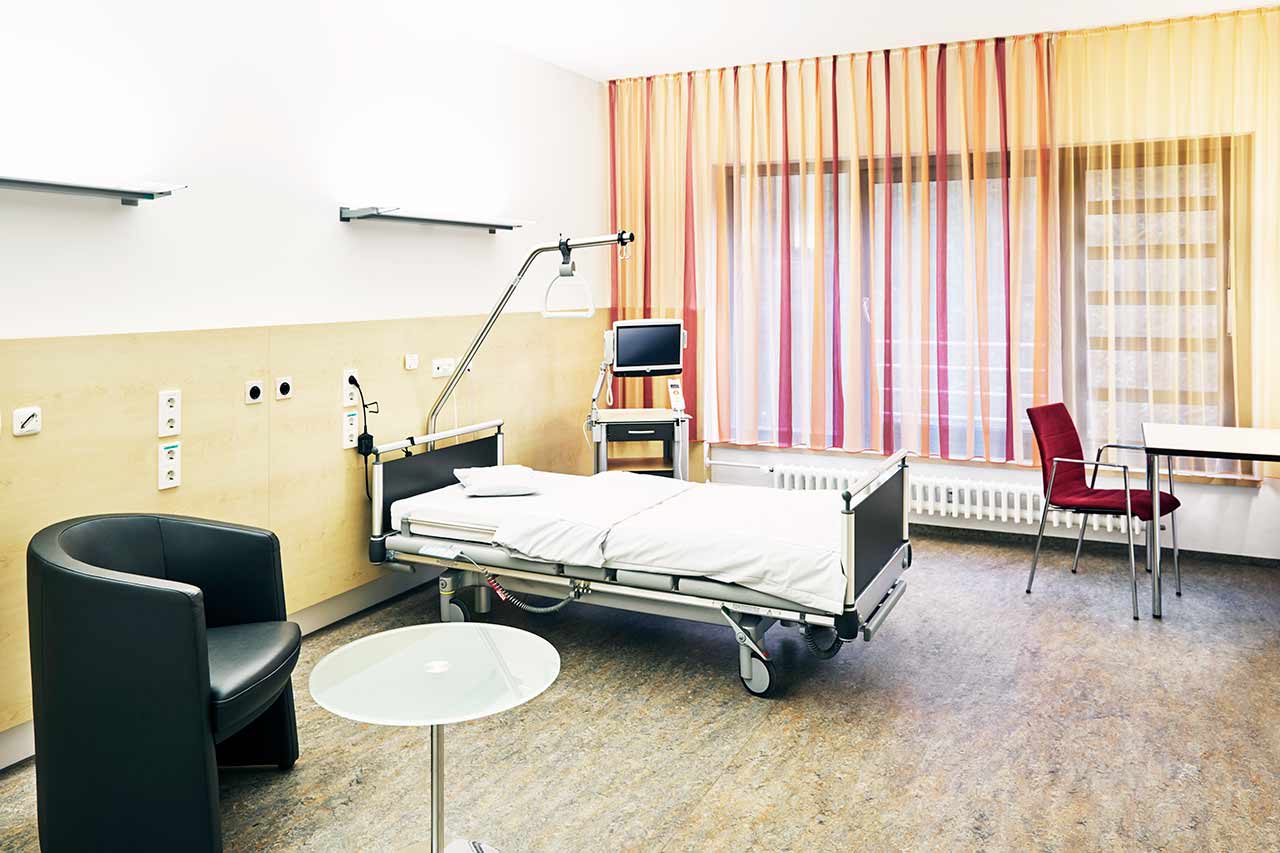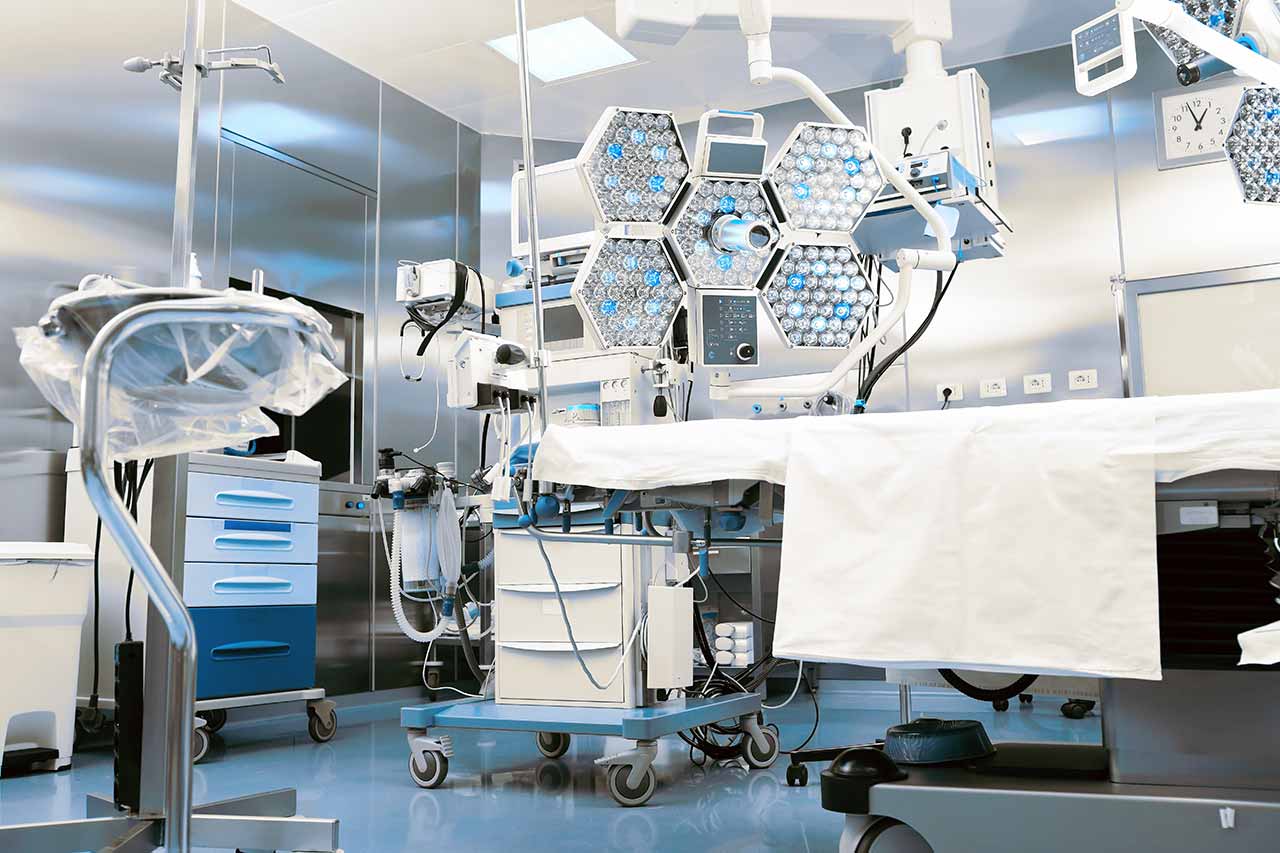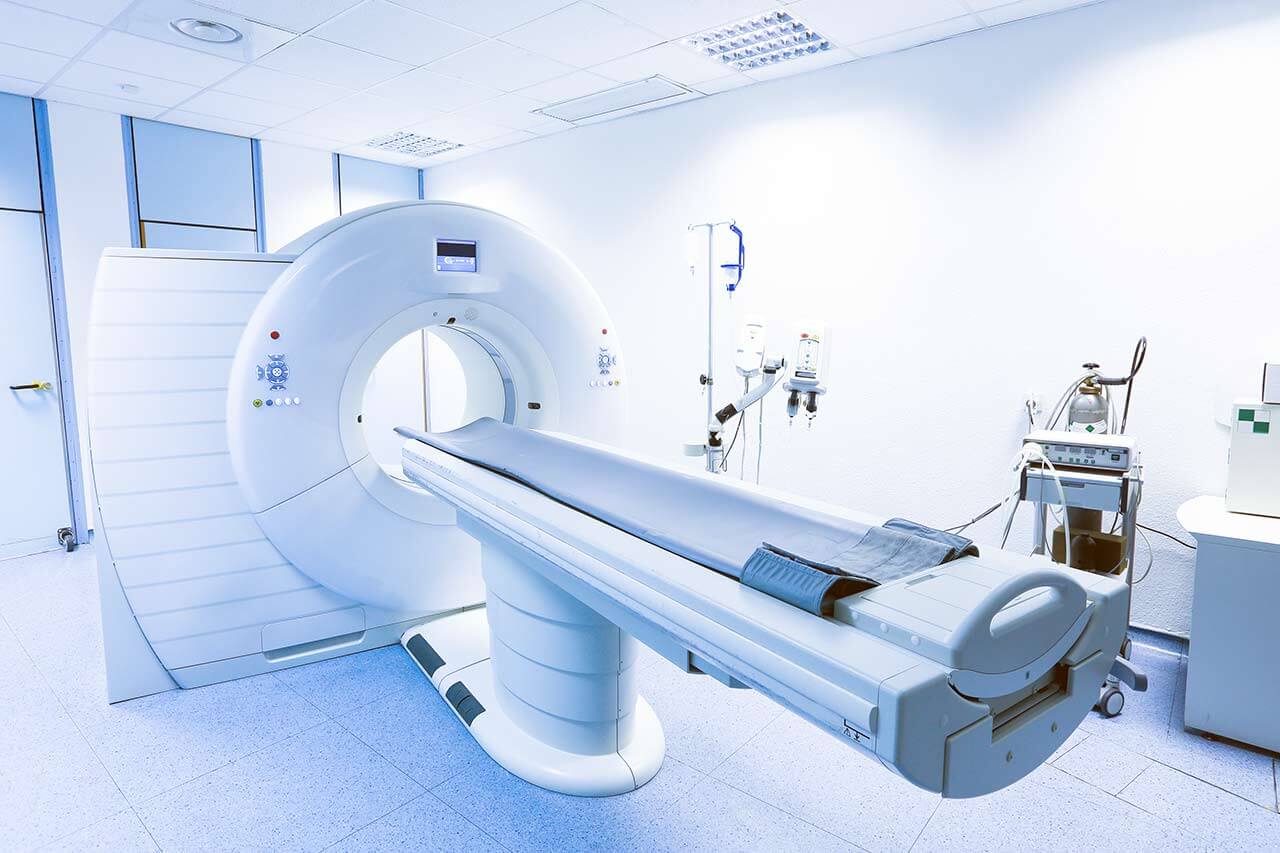
The program includes:
- Initial presentation in the clinic
- clinical history taking
- review of medical records
- physical examination
- laboratory tests:
- general blood analysis
- lipid metabolism
- carbohydrate metabolism
- mineral metabolism
- protein electrophoresis
- immune stasus (ANCA test)
- erythrocyte sedimentation rate (ESR)
- rheumatoid factor (RF)
- ultrasound of vessels
- MRI scan (on indication 1200 €)
- biopsy of an affected organ or tissue
- histological and immunohistochemical studies (on indication 1200 €)
- nursing services
- consultation of all leading experts
- development of individual treatment plan
- written statement
Required documents
- Medical records
Service
You may also book:
 BookingHealth Price from:
BookingHealth Price from:
About the department
The Department of Nephrology, Hypertension and Rheumatology at the Hospital Kassel offers the full range of diagnostic and therapeutic services in the areas of its specialization at the highest level of modern medicine. The highly competent doctors of the department provide effective treatment of acute and chronic kidney diseases, arterial hypertension, rheumatic diseases accompanied by vascular inflammation, damage to the joints and internal organs, bone metabolism disorders, connective tissue diseases and autoimmune diseases. The priority tasks of the department's medical team include various types of renal replacement therapy (dialysis), preparation of patients for kidney transplantation and follow-up care after the intervention. All therapeutic measures comply with the current clinical protocols, which guarantee high-quality treatment results even in particularly complex clinical cases. The department is headed by Prof. Dr. med. Jörg Plum.
The department's doctors are distinguished by their successful experience in the treatment of acute and chronic kidney diseases, including renal artery stenosis and pathological kidney lesions caused by diabetes mellitus. The first stage of treatment is comprehensive kidney diagnostics, which is carried out within the specialized laboratory. The department's nephrologists perform such examinations as classical and duplex ultrasound scanning, kidney biopsy, phase contrast microscopy, assessment of acid-base status, differential assessment of fluid and electrolyte disorders, long-term blood pressure measurement and functional tests for the detection of the causes of secondary forms of hypertension. If the patient requires imaging tests (CT and MRI scanning), the specialists of the Department of Diagnostic and Interventional Radiology are involved in the diagnostic process. Renal scintigraphy is carried out in the Department of Nuclear Medicine.
One of the most life-threatening nephrological diseases is kidney failure, and therefore the department's doctors have at their disposal many effective treatment methods for this pathology. In addition to drug therapy, various types of dialysis procedures are available for patients with kidney failure. Renal replacement therapy is performed in specially equipped treatment rooms. The department has 12 beds for hemodialysis, hemofiltration and peritoneal dialysis. If renal replacement therapy is not effective, kidney transplantation becomes the last line treatment. The kidney transplantation is performed at the Hospital Fulda, with which the department is in close cooperation. The department's nephrologists are responsible for comprehensive diagnostics, which is aimed at the preparation of the patient for transplantation and follow-up care of the patient.
The department's range of medical services includes:
- Diagnostics and treatment of acute and chronic kidney disease
- Glomerulonephritis
- Interstitial nephritis
- Hereditary kidney diseases
- Pathological kidney lesions due to metabolic disorders
- Fluid and electrolyte disorders
- Kidney and urinary tract infections
- Systemic lupus erythematosus, vasculitis and other systemic rheumatic diseases
- Pathological kidney lesions caused by diabetes mellitus
- Diagnostics and treatment of arterial hypertension, including especially severe secondary types of arterial hypertension
- Diagnostics and treatment of renal artery stenosis
- Diagnostics and treatment of kidney failure
- Diagnostics and treatment of metabolic bone diseases
- Diagnostics and treatment of systemic rheumatic diseases and autoimmune diseases
- Medical care for patients before and after kidney transplantation
- Other medical services
The diagnostic and therapeutic options of the department include:
- Diagnostics
- Classic and duplex ultrasound scanning
- Kidney biopsy
- Phase contrast microscopy
- Assessment of acid-base status
- Differentiated assessment of fluid and electrolyte disorders
- Long-term blood pressure measurement
- Functional tests for the detection of the causes of secondary types of hypertension
- Kidney CT and MRI (in collaboration with the Department of Diagnostic and Interventional Radiology)
- Renal scintigraphy (in collaboration with the Department of Nuclear Medicine)
- Treatment
- Drug therapy
- Renal replacement therapy and blood purification procedures in the case of kidney failure
- Hemodialysis
- Hemofiltration
- Peritoneal dialysis (continuous ambulatory peritoneal dialysis, automated peritoneal dialysis)
- Continuous venovenous hemodialysis
- Continuous venovenous hemodiafiltration
- Plasmapheresis
- Immunoadsorption
- Lipid apheresis
- Rheopheresis
- Interventional procedures for the formation of dialysis access, including the placement of central venous catheters for continuous dialysis
- Other diagnostic and treatment methods
Photo of the doctor: (c) Klinikum Kassel
About hospital
The Hospital Kassel is a progressive medical facility with a huge medical team, which provides high-quality medical services in all branches of modern medicine. The hospital is part of the regional medical Gesundheit Nordhessen Holding, which unites 5 top-class medical centers, including specialized rehabilitation clinics. With 1,281 beds, the hospital is known as the largest medical complex in the federal state of Hesse. The hospital has 32 specialized departments with highly qualified doctors and specially trained nursing staff in each department. The team of 3,200 employees takes care of the health of patients. The main value for each employee is the patient's health. The professional skills of the medical staff in combination with state-of-the-art medical and technical equipment of the hospital provide excellent opportunities for the treatment of patients with pathologies of any severity.
The hospital provides treatment to over 55,000 inpatients and about 140,000 outpatients every year. Medical care is provided to both German citizens and many patients from foreign countries. Such high rates are the evidence of excellent quality of medical services and the high credit of patients' trust.
The hospital has created a wonderful atmosphere, which contributes to the rapid recovery of patients. All diagnostic and therapeutic rooms, operating rooms, as well as patient rooms are designed taking into account modern standards of European medicine in order to ensure maximum comfort of each patient. All employees working in the hospital provide the patient with understanding and respect, as well as support him in every possible way during the entire therapeutic process.
The hospital successfully implements a quality management system. It uses its own quality management system implemented by the medical Gesundheit Nordhessen Holding, as well as the IQM (Initiative Qualitätsmedizin) monitoring system. As part of healthcare quality management, the hospital annually clearly provides reports on its clinical activities, the success of diagnostics, treatment, level of patient care, etc. Thus, the hospital stands for maximum openness in its work and makes every effort to maintain the highest level of quality of medical care.
Photo: (с) depositphotos
Accommodation in hospital
Patients rooms
The patients of the Hospital Kassel live in comfortable single, double and triple rooms. The patient rooms are made in a modern design and pastel colors. A standard patient room includes an automatically adjustable bed, a bedside table, a wardrobe, a table and chairs for receiving visitors, a TV and a telephone. The patient rooms have Wi-Fi. Each room has an ensuite bathroom with shower and toilet.
The hospital also offers enhanced-comfort patient rooms. Most of these rooms have a balcony. The bathroom additionally includes a hairdryer, towels and toiletries.
Meals and Menus
The patient and the accompanying person are offered tasty and balanced three meals a day. If for some reason you do not eat all foods, you will be offered an individual menu. Please inform the medical staff about your food preferences prior to treatment. The patients staying in enhanced-comfort rooms are provided with an individual menu every day.
The hospital also has several cafes where one can have a cup of tea or coffee, taste delicious pastries, salads, main hot dishes, pizza, etc.
Further details
Standard rooms include:
Religion
The religious services are available upon request.
Accompanying person
During the inpatient program, the accompanying person can live with the patient in a patient room or a hotel of his choice. Our managers will help you choose the most suitable option.
Hotel
During an outpatient program, the patient can stay at the hotel of his choice. Our managers will help you choose the most suitable option.





